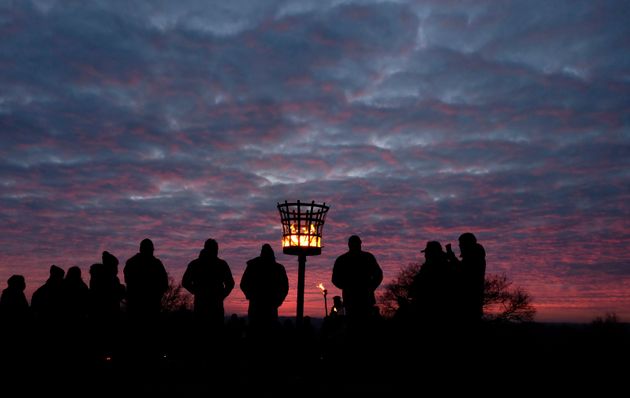The day after Christmas is euphemistically called Boxing Day, and I think this is because it was the day when people put used food and old gifts into boxes and distributed them to the poor so they could have a Christmas too. I love Boxing Day. I love that a day is dedicated to being the Day After Christmas. The day of sleeping in and eating leftovers and doing very little. The day of listening to the radio and watching movies and recovery.
But Boxing Day is the Feast of Saint Stephen, protomartyr. Poor Stephen has the same fate as everyone born on the day after or the day before Christmas. We sleep through his day. There is a lesson in his day, the lesson of the joy of the Christ Child’s birth, which had made the whole world new being linked with the same old killing of things good and pure, the lesson that Stephen has the hope of heaven in his death and his death is not in vain and yet, being so close to Christmas the ultimate lesson of Christmas swallows up Saint Stephen’s Day. The joy of the new birth swallows up the sad story of death and makes a sort of mockery of it.
So instead we have Boxing Day. Christmas was bright and full of light, blue sky over white, sparkling snow. Christmas Eve the sky was pale purple with snowclouds. Saint Stephen’s Day is grey and tells us to go back to sleep. There is good news and a new world, but we cannot comprehend it right now, so please have another sandwich, a nap and a beer. This is the day that Mary and Joseph and shepherds who had heard a strange tale were also left unable to comprehend and could only do what we humans do to live, eat, breathe, rest, be kind to one another, muddle through, put vast decisions and meditations off for another day until we have the resources to understand a little more.
In these first few days I am trying to understand this hope in my heart, trying to realign my prayer and my working the light of hymns which are homely as well as majestic, hopeful as well as deeply sorrowful, tracing my way through the holy darkness of the midnight mass where light has sprung. I live in hope, unable to articulate the dimensions of this hope, and away from the liturgical celebrations, eating and feasting and sleeping and enjoying the days, I cannot explain the hope either. So I turn to silence and writing.
John F Baldovin points out that in an octave feast like Christmas or Easter the point is we are all in one great day. Christ was not born Friday at midnight a day ago or almost two days ago as it nearly eleven pm on Saturday. Christ is born today. He is born as this evening we repeat the midnight service at five while light goes to darkness. We are still coming to understand this extended day. We will never stop coming to understand it, not really. And this day is still going on and will still be going on Monday morning when the normalcy of life takes over, when the aggravations come. This day does not stop being this day even when the full force of the sorrows of the world enter and, of course, this makes sense, for this is the day not only that the Lord made, but that he chose to come into. That is the blessedness of Christmas, that the world is blessed because God proclaims it blessed. He does not consent to come into it, but longs to come into it. This life we are so indifferent to or that we despise, he is drawn to. This life, this world is hallowed not only because he enters it, but because he declares it hallowed by desiring to enter it.
For the last month we have celebrated waiting for the Lord. Now we celebrate that the Lord has come. Up until Yule we celebrated the closing of the year and the ending of the world. Now we celebrate the birth of a new one. And yet, the world before and the world after looks something the same. Feels the same. Is the same. How they are not the same, how we can look into the world we’ve always seen and know a new one is the mystery of Advent and Christmas.

No comments:
Post a Comment